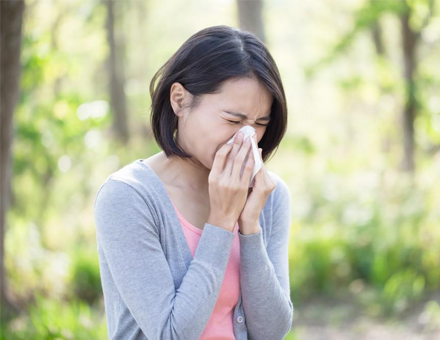Hay fever symptoms like sneezing, itchiness, redness, or rashes can ruin the approach of spring, if you let them. As plants come into bloom and leaves emerge, pollen counts start to rise. If you have hay fever, you may have good reason to worry that soon you’ll be sneezing up a storm. This spring, take charge of your hay fever before it starts to threaten your enjoyment of the season.
Ulin Sargeant, MD, MPH, founder of Monrovia Internal Medicine & Primary Care in Duarte, California, offers a full range of support services for people of all ages who are concerned about or dealing with hay fever and other allergies. An experienced internist, Dr. Sargeant is also a leading telemedicine pioneer. Here’s what she recommends you do to soothe your hay fever and prevent outbreaks.
Why am I sneezing?
Also called allergic rhinitis, hay fever often presents with symptoms that mimic those of a cold. You might have sneezing bouts, congestion or sinus pressure, and itchy eyes. However, unlike a cold, the symptoms of hay fever aren’t caused by a virus or bacteria. Instead, your system is reacting to an outdoor or indoor allergen.
Many types of allergens can lead to hay fever symptoms. Some of the common triggers include:
- Pollen from trees, grass, or ragweed
- Dust mites, cockroaches, and pet dander
- Fungal spores, found both indoors and outdoors, and molds
Depending on what causes your hay fever, you might face severe seasonal flare-ups. For example, pollen-triggered hay fever often becomes more active in spring, while pet-related hay fever may be worse in the winter due to lack of indoor air circulation and reduced time outside.
Things to try at home
When you feel a hay fever attack coming on, you can take steps to potentially stop it from getting worse and find some relief from uncomfortable symptoms.
The first thing to do is limit your exposure to substances that trigger your hay fever as much as you can. Dr. Sargeant can recommend specific strategies to deal with your unique sensitivities, symptoms, and lifestyle needs. Often, rinsing your sinuses can help to remove the allergens irritating your system.
You may find relief from over-the-counter (OTC) medications to manage symptoms like a runny nose or itchy eyes. However, if OTC treatments aren’t enough to keep you comfortable, prescription medication options are also an option.
Available medical support
When your hay fever threatens to get out of control, or if you know you have particularly intense attacks, Dr. Sargeant can prescribe stronger medications to tame your symptoms. Medications used for hay fever include:
- Nasal corticosteroid sprays — to treat inflammation, itching, and runny nose
- Antihistamine pills, nasal sprays, or eyedrops to block your allergic reaction — helpful for itching, sneezing, and runny nose
You might need a combination of medications and therapies to soothe your hay fever symptoms completely. Some medications for hay fever may not be safe for children to use, so always be sure to follow your doctor’s instructions. Dr. Sargeant works with you to develop the right comprehensive treatment plan for your hay fever.
You can schedule a consultation appointment with Dr. Sargeant to discuss your hay fever prevention and treatment plan through the Monrovia Internal Medicine & Primary Care virtual office, or you’re welcome to come in and see us. We offer an online booking tool for your convenience.


